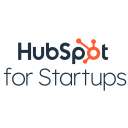Attio vs HubSpot: Which CRM solution will drive your growth?
- 01Attio vs HubSpot: overview
- 02What's the difference between Attio and HubSpot?
- 03Attio pros and cons
- 04HubSpot pros and cons
- 05Attio compared to HubSpot
- 06HubSpot compared to Attio
- 07Features comparison
- 08Attio vs HubSpot: Which is the best for your business?
- 09Promotions on CRM software
- 10Alternatives to Attio & HubSpot
Access up to $6,624 savings on Attio & $7,000 on HubSpot
HubSpot
75% off for 1 year
Access up to $6,624 savings on Attio & $7,000 on HubSpot
HubSpot
75% off for 1 year
In today's competitive business landscape, effective customer relationship management (CRM) is crucial for success. CRMs do more than just store contacts; they streamline workflows, enhance customer interactions, and provide valuable insights that drive growth. However, with so many CRM solutions available, finding the right fit for your business can be daunting.
To help you make an informed choice, we've conducted a thorough comparison of two prominent CRMs: Attio and HubSpot. We'll explore their features, evaluate their strengths and weaknesses, and identify the key differences that set them apart. By the end of this analysis, you'll have a clear understanding of which CRM platform better suits your business needs and growth objectives.
Attio vs HubSpot: overview
Attio and HubSpot are two leading contenders in the CRM software category, each offering unique features designed to meet the diverse needs of businesses.
Attio is known for its modern, user-centric design that emphasizes simplicity and flexibility. It offers powerful collaboration tools and customizable workspaces, enabling teams to tailor the CRM experience to their specific workflows. On the other hand, HubSpot is celebrated for its comprehensive suite of tools that go beyond traditional CRM capabilities, encompassing marketing automation, sales, and customer service.
As we dive into an Attio vs HubSpot comparison, our goal is to provide you with a thorough analysis that will help you determine which CRM platform aligns best with your business needs. By examining their strengths, weaknesses, and unique offerings, you'll be better equipped to make an informed decision that supports your company’s growth and operational efficiency.
What's the difference between Attio and HubSpot?
Attio and HubSpot are both prominent CRM platforms, each offering distinct features and capabilities tailored to different business needs. The primary differences between the two lie in their approach to CRM functionality, user experience, and overall design philosophy.
Attio is designed with a focus on simplicity and flexibility. Its user interface is clean and intuitive, making it easy for teams to customize their workspaces and manage customer data effectively. Attio emphasizes real-time collaboration, allowing teams to build and modify their CRM environment to fit specific workflows seamlessly. This flexibility makes Attio particularly appealing to small to mid-sized businesses or startups that need a CRM that can adapt to their evolving processes. Additionally, Attio's lightweight design is geared towards users who prioritize a streamlined experience without the need for extensive training or onboarding.
In contrast, HubSpot is recognized for its comprehensive suite of tools that extend far beyond traditional CRM functions. HubSpot integrates marketing, sales, customer service, and operations tools into a single platform, providing a robust solution for businesses looking for an all-in-one system. This makes HubSpot especially attractive to larger organizations or companies that require a CRM with extensive features and scalability. HubSpot’s advanced analytics and reporting capabilities allow businesses to gain deep insights into customer behavior, campaign performance, and overall business health. However, the breadth of HubSpot’s features can make it more complex and time-consuming to implement, especially for teams that do not need all of its functionalities.
In terms of pricing, Attio typically offers more affordable and straightforward plans, making it accessible for smaller teams or businesses on a budget. HubSpot, while offering a free tier, often requires investment in higher-priced plans to access its full range of features, which may be better suited for larger enterprises with broader needs.
The choice between Attio and HubSpot comes down to the specific requirements of your business. If you need a flexible, user-friendly CRM that can grow with your team, Attio might be the better fit. If you’re looking for a more comprehensive platform that integrates multiple business functions and provides in-depth analytics, HubSpot is likely the better option.
Attio pros and cons
What are the advantages of Attio?
- Customizable workspaces: Attio offers highly customizable workspaces, allowing teams to tailor their CRM environment to match specific workflows and business needs. This flexibility is ideal for companies with unique processes.
- User-friendly interface: The platform is designed with simplicity in mind, featuring a clean and intuitive interface that reduces the learning curve and makes it easy for teams to adopt the CRM quickly.
- Real-time collaboration: Attio enables real-time collaboration, allowing team members to work together seamlessly on customer data and projects. This feature enhances teamwork and communication within the organization.
- Lightweight and fast: Attio is lightweight, making it quick to load and responsive, even for teams that need to manage large amounts of data. This efficiency can improve overall productivity.
- Affordable pricing: Attio typically offers competitive pricing, making it an attractive option for small to mid-sized businesses or startups that require a robust CRM solution without a significant financial commitment.
What are the disadvantages of Attio?
- Limited advanced features: While Attio excels in simplicity, it may lack some advanced features found in more comprehensive CRMs, such as in-depth analytics, marketing automation, or AI-driven insights.
- Smaller integration ecosystem: Attio has fewer third-party integrations compared to more established CRMs, which could be a drawback for businesses that rely heavily on integrating multiple tools and platforms.
- Scalability concerns: As businesses grow and their needs become more complex, Attio's lightweight nature might not fully meet the demands of larger enterprises, which may require a more robust CRM solution.
- Limited reporting capabilities: While Attio provides basic reporting features, it may not offer the same depth of analytics and reporting as larger CRM platforms, potentially limiting insight into business performance.
- Less brand recognition: As a relatively newer player in the CRM space, Attio may lack the brand recognition and trust that more established CRMs have built over time, which could be a consideration for some businesses.
Compare Attio to other tools
HubSpot pros and cons
What are the advantages of HubSpot?
- Comprehensive all-in-one platform: HubSpot offers a wide range of tools that go beyond CRM, including marketing automation, sales, customer service, and operations management. This makes it a powerful, integrated solution for businesses looking to manage multiple aspects of their operations from a single platform.
- Robust analytics and reporting: HubSpot provides detailed analytics and reporting features that give businesses deep insights into customer behavior, campaign performance, and overall business health. These tools help companies make data-driven decisions.
- Scalability: HubSpot is designed to grow with your business. Whether you’re a small startup or a large enterprise, HubSpot’s tiered pricing and feature sets allow you to scale your CRM capabilities as your business expands.
- Extensive integration ecosystem: HubSpot boasts a vast marketplace of third-party integrations, making it easy to connect with other tools and platforms that your business might be using, such as email marketing services, e-commerce platforms, and more.
- Free CRM tier: HubSpot offers a free version of its CRM, providing essential features for small businesses or those just starting out. This makes it accessible to a wide range of users without any initial financial investment.
What are the disadvantages of HubSpot?
- High cost for advanced features: While HubSpot offers a free tier, access to its more advanced features often requires a significant financial investment. As businesses grow and need more capabilities, the costs can become substantial.
- Complexity: Due to its extensive feature set, HubSpot can be complex to set up and manage, especially for businesses that do not have dedicated staff or resources to handle its implementation and maintenance.
- Steep learning curve: The broad range of tools and features in HubSpot can lead to a steep learning curve for new users. This can result in longer onboarding times and the need for ongoing training.
- Overwhelming for small teams: For small businesses or teams that don’t need all the bells and whistles, HubSpot’s comprehensive toolset might feel overwhelming or unnecessary, leading to underutilization of the platform.
- Customization limitations: While HubSpot is highly functional, some users find that it offers limited customization options compared to other CRM solutions. This can be a drawback for businesses with very specific needs or complex workflows.
Compare HubSpot to other tools
Attio compared to HubSpot
Attio and HubSpot cater to different business needs in the CRM space. Attio stands out for its simplicity and flexibility, offering a user-friendly interface that allows teams to customize their workflows easily. It's ideal for small to mid-sized businesses seeking a lightweight, adaptable CRM solution.
In contrast, HubSpot provides a comprehensive, all-in-one platform that integrates marketing, sales, and customer service tools, making it more suitable for larger organizations with complex needs. While Attio excels in ease of use and affordability, HubSpot offers robust features and scalability, though it can be more complex and costly.
Is Attio better than HubSpot?
Whether Attio is better than HubSpot depends on your business's specific needs and priorities. Attio is better suited for businesses that prioritize a simple, user-friendly CRM with customizable workflows, particularly for small to mid-sized teams seeking an affordable solution without the complexity of larger platforms.
On the other hand, HubSpot is better for businesses that require a comprehensive, all-in-one platform with advanced features, integrations, and scalability to manage marketing, sales, and customer service. If your business needs a lightweight, adaptable CRM, Attio may be the better choice, whereas HubSpot is ideal for those needing robust, multi-functional capabilities.
What is Attio best used for?
Attio is best used for businesses that require a flexible and customizable CRM solution tailored to their specific workflows. It excels in environments where teams need to manage customer relationships in a streamlined, intuitive interface without the complexity of more comprehensive CRMs.
Attio is particularly well-suited for small to mid-sized businesses, startups, or teams that prioritize real-time collaboration and simplicity. Its ability to adapt to various processes and its user-friendly design make it ideal for companies looking to maintain efficiency while managing contacts, tracking interactions, and enhancing team productivity.
Can Attio replace HubSpot?
Attio can potentially replace HubSpot for businesses that prioritize simplicity, customization, and a user-friendly experience over the comprehensive features HubSpot offers.
For small to mid-sized companies or startups that need a flexible CRM tailored to specific workflows without the need for extensive marketing automation, advanced analytics, or integrated sales tools, Attio could be a suitable alternative. However, for larger organizations or those requiring an all-in-one platform that includes marketing, sales, and customer service capabilities, HubSpot’s robust feature set may be irreplaceable.
Is Attio cheaper than HubSpot?
Attio is generally more affordable than HubSpot, making it an attractive option for small to mid-sized businesses or startups with limited budgets. Attio offers competitive pricing for its CRM services, focusing on providing essential features with flexibility and simplicity.
In contrast, while HubSpot does offer a free tier, accessing its full range of advanced features typically requires a significant financial investment, especially as businesses scale and require more comprehensive tools for marketing, sales, and customer service. For companies looking for a cost-effective CRM solution without the need for extensive add-ons, Attio’s pricing is often the cheaper choice.
Is there a better CRM software than Attio?
When considering CRM options, it's important to ask whether there’s better software than Attio that might align more closely with your business needs.
Alternatives to Attio include HubSpot, Salesforce, Close, and Insightly. The best CRM for your business depends on factors like the complexity of your operations, integration needs, scalability, and budget. While Attio excels in providing a flexible, user-friendly experience with a focus on simplicity, other platforms might offer advanced features, broader integrations, or scalability that better fit your organization’s specific requirements.
80% off the Pro plan for 1 year on Attio
Get 80% off the Pro plan for 1 year on Attio and up to $6,624 savings with Secret.
HubSpot compared to Attio
HubSpot offers a comprehensive CRM platform with integrated marketing, sales, and customer service tools, making it ideal for larger businesses with complex needs. Its robust features, including advanced analytics, automation, and extensive integrations, provide a powerful solution for managing the entire customer lifecycle.
In contrast, Attio is designed for simplicity and flexibility, offering a more streamlined and customizable experience that is particularly suited for small to mid-sized businesses or startups. While HubSpot provides a broader range of tools and scalability, Attio excels in ease of use and adaptability, making it a better choice for teams seeking a lightweight CRM solution.
Is HubSpot better than Attio?
Whether HubSpot is better than Attio depends on your business's specific requirements. HubSpot is better suited for larger businesses that need a comprehensive CRM with integrated marketing, sales, and customer service tools. Its advanced analytics, automation, and wide range of integrations make it ideal for managing complex operations and supporting business growth.
However, if your business prioritizes a simpler, more customizable CRM experience, especially for smaller teams or startups, Attio may be the better option. HubSpot’s strength lies in its all-in-one capabilities and scalability, while Attio excels in ease of use and flexibility for more straightforward needs.
What is HubSpot best used for?
HubSpot is best used for businesses looking to manage their entire customer journey from a single, integrated platform. It excels in providing comprehensive tools for marketing, sales, customer service, and operations, making it ideal for companies that need to automate workflows, generate leads, track sales pipelines, and deliver exceptional customer support.
HubSpot’s robust analytics and reporting features help businesses gain deep insights into performance and optimize their strategies. It is particularly well-suited for medium to large enterprises that require scalability and advanced functionality to support growth, customer engagement, and data-driven decision-making.
Can HubSpot replace Attio?
HubSpot can replace Attio for businesses that require a more comprehensive CRM solution with integrated tools for marketing, sales, and customer service. While Attio excels in simplicity and flexibility, HubSpot offers a broader feature set, making it suitable for companies that need advanced automation, analytics, and scalability.
For organizations seeking an all-in-one platform to manage every aspect of customer relationships and drive growth, HubSpot’s extensive capabilities make it a strong alternative to Attio. However, smaller businesses or teams that prefer a more streamlined and customizable CRM experience might find Attio better aligned with their needs.
Is HubSpot cheaper than Attio?
HubSpot is generally more expensive than Attio, especially as businesses scale and require more advanced features. While HubSpot’s pricing structure does offer a free tier with basic CRM capabilities, accessing its full suite of marketing, sales, and service tools often involves higher pricing plans that can add up quickly.
Attio, on the other hand, is typically more affordable, offering a cost-effective solution for businesses that prioritize flexibility and simplicity without the need for extensive automation or advanced features. For small to mid-sized companies or startups with budget constraints, Attio is often the cheaper option compared to HubSpot.
Is there a better Content Marketing software than HubSpot?
When considering alternatives to HubSpot in the CRM landscape, it’s crucial to determine if there’s a better software that aligns more precisely with your business requirements.
Several strong alternatives to HubSpot include Zendesk, Zoho CRM, Pipedrive, and Freshsales.
Choosing the right CRM depends on factors such as the complexity of your operations, scalability, integration needs, and budget. While HubSpot offers a comprehensive, all-in-one platform with powerful marketing and sales tools, other options may excel in specific areas like advanced customization, deeper integration capabilities, or more affordable pricing for smaller teams.
75% off for 1 year on HubSpot
Get 75% off for 1 year on HubSpot and up to $7,000 savings with Secret.
Features comparison
Attio Edges Out HubSpot in Ease-of-Use for Beginners
When it comes to ease-of-use, Attio edges out HubSpot, particularly for those new to CRM systems. Attio prides itself on a clean, intuitive interface that simplifies navigation, even for beginners who may not have extensive technical expertise. The tool has been carefully designed with user-friendliness in mind, ensuring that users can quickly understand and manage their CRM without extensive training or onboarding.
Attio’s setup and configuration process are remarkably simple, allowing businesses to hit the ground running with minimal effort. In contrast, HubSpot, while powerful, can be more complex and overwhelming for users who require a straightforward and accessible CRM solution.
HubSpot Leads Attio with Extensive Integration Capabilities
Switching lenses to integrations, HubSpot takes the lead over Attio with its expansive ecosystem of more than 1,000 integrations. This extensive network provides unparalleled flexibility, allowing businesses to customize and extend their platform by seamlessly connecting to other essential business applications. HubSpot offers robust integration options across various categories, including marketing tools like Mailchimp, customer service apps like Zendesk, and productivity tools like Slack and Google Workspace.
This wide range of integrations ensures that HubSpot can fit seamlessly into your existing tech stack, enhancing its functionality and enabling businesses to create a unified, efficient workflow. In contrast, while Attio offers some integration capabilities, it cannot match the breadth and depth of HubSpot’s extensive integration ecosystem.
Attio Shines Over HubSpot in Automatic Data Enrichment Capabilities
While both tools offer robust features for managing and understanding customer data, Attio shines when it comes to data enrichment. Attio's standout feature is its automatic contact data enrichment, which seamlessly aggregates information from various sources such as email interactions, social media, and other online data points. This process creates comprehensive, up-to-date profiles that give businesses a more in-depth view of each contact, enhancing personalization and decision-making.
On the other hand, HubSpot provides strong lead segmentation and scoring capabilities, allowing for targeted marketing and sales efforts, but it lacks the same level of automatic data enrichment that Attio offers. HubSpot users may need to rely on manual input or additional tools to achieve the same depth of contact insights that Attio provides natively.
HubSpot Excels Ahead of Attio in Automation and Workflow Features
HubSpot excels in its automation and workflow features, offering users the ability to automate a wide range of repetitive tasks, such as scheduling social media posts, sending follow-up emails, and managing complex sales processes. This robust automation not only enhances productivity but also allows teams to focus on strategic activities by freeing up valuable time. HubSpot's automation tools include detailed workflows that can trigger actions based on specific customer behaviors, such as abandoned cart emails or lead nurturing sequences.
While Attio provides customizable workspaces for managing workflows, it lacks the extensive and sophisticated automation capabilities found in HubSpot, making HubSpot the superior choice for businesses that rely heavily on automated processes to drive efficiency and growth.
Attio Stands Out Over HubSpot in Prioritizing Data Security
In terms of security, Attio stands out with its strong focus on data protection, implementing robust measures to ensure that sensitive customer information is safeguarded at all times. Attio employs advanced encryption protocols both in transit and at rest, ensuring that data remains secure from potential breaches or unauthorized access. Additionally, Attio’s commitment to security is evident in its regular security audits and compliance with industry standards, giving businesses peace of mind when handling customer data.
While HubSpot also offers secure features, including encryption and regular security updates, the emphasis on security is not as prominent or deeply integrated as it is in Attio. This makes Attio particularly appealing to businesses for whom data security is a top priority.
Both Attio and HubSpot Offer Strong Sales Pipeline Management Capabilities
Both Attio and HubSpot provide robust features for managing sales pipelines, making them powerful tools for tracking progress and managing workloads efficiently. In both platforms, users can set customizable stages and milestones, allowing them to tailor the sales process to their unique business needs. Attio and HubSpot both offer intuitive, visual representations of the sales pipeline, enabling users to easily move deals through various stages with drag-and-drop simplicity. This functionality helps sales teams stay organized and focused on closing deals.
While HubSpot might integrate additional analytics and reporting features to further enhance pipeline management, Attio’s streamlined approach ensures that teams can manage their sales processes with equal effectiveness. Both tools excel in this area, making them valuable assets for businesses aiming to optimize their sales operations.
HubSpot Goes Above and Beyond Attio in Reporting and Analytics Capabilities
HubSpot goes above and beyond with its reporting and analytics features, offering users an extensive array of customizable dashboards and reports that allow for deep insights into every aspect of their business operations. With HubSpot, users can easily create and modify dozens of reports, ranging from sales performance and marketing effectiveness to customer service metrics, all accessible through intuitive, real-time dashboards. This level of control and granularity in data analysis empowers businesses to make informed decisions with precision.
Although Attio also provides valuable analytics and reporting tools, its offerings are more limited in comparison. HubSpot's out-of-the-box dashboards, coupled with its ability to generate a wide variety of reports without needing additional configuration, give it a significant edge for businesses seeking comprehensive data-driven insights.
Subscribe to our newsletters.
No FOMO here. Stay up-to-date on all the latest deals and news with our monthly newsletter straight to your inbox like 126,000+ entrepreneurs (+ Get 10% off on on our Premium Membership!)
Attio vs HubSpot: Which is the best for your business?
Attio is the best tool for you if:
- You prioritize a clean, intuitive user interface that allows for easy navigation and quick onboarding without extensive training, making it ideal for teams seeking simplicity
- You need a customizable CRM that adapts to your unique workflows, providing the flexibility to tailor the platform to your business processes without unnecessary complexity.
- Your business values real-time collaboration, with a CRM that enables seamless teamwork and efficient communication, ensuring all team members are on the same page.
- You are a small to mid-sized business or startup looking for an affordable, lightweight CRM solution that offers essential features without the high costs associated with larger platforms.
- You want a CRM with strong data security measures, prioritizing the protection of sensitive customer information while still delivering a user-friendly and adaptable experience.
HubSpot is the best tool for you if:
- You need an all-in-one platform that integrates CRM, marketing, sales, and customer service tools, providing a comprehensive solution for managing every aspect of the customer journey.
- You prioritize advanced automation capabilities that allow you to streamline repetitive tasks, such as email marketing, lead nurturing, and sales workflows, enhancing productivity and efficiency.
- You require detailed analytics and reporting features, offering customizable dashboards and in-depth insights that help you make data-driven decisions and optimize your business strategies.
- Your business needs scalability, with a platform that can grow with you, offering robust features and integrations suitable for small startups to large enterprises.
- You want access to an extensive ecosystem of third-party integrations, enabling seamless connectivity with other essential business applications, enhancing the functionality of your CRM system.
Alternatives to Attio & HubSpot
Promotions on CRM software
Start saving on the best SaaS with Secret.
Secret has already helped tens of thousands of startups save millions on the best SaaS like Attio, HubSpot & many more. Join Secret now to buy software the smart way.

















